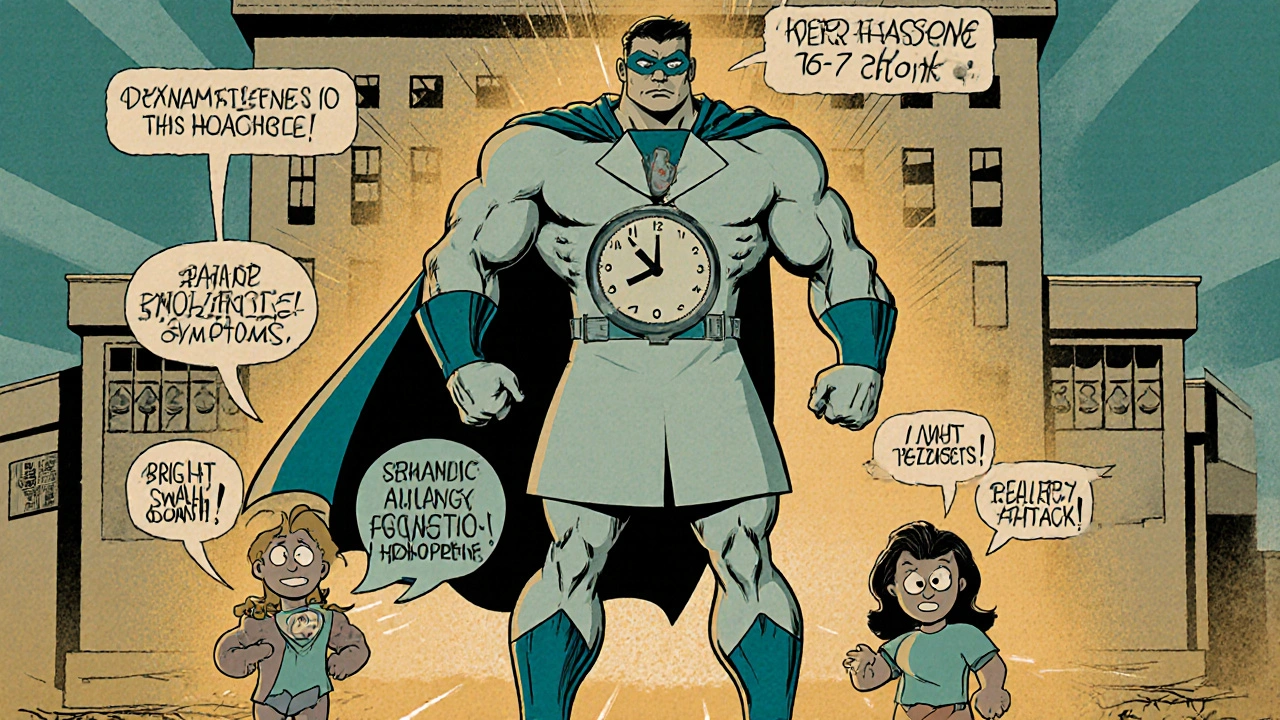Dexamethasone: Uses, Side Effects, and What You Need to Know
When you hear dexamethasone, a synthetic corticosteroid used to reduce inflammation and suppress immune responses. Also known as Decadron, it’s one of the most potent steroids doctors reach for when the body’s natural defenses are working too hard. Unlike painkillers that just mask symptoms, dexamethasone targets the root cause—swelling, overactive immune reactions, or hormonal imbalances. It’s not a cure, but it buys time, calms chaos, and often saves lives.
Dexamethasone doesn’t work the same way in every person. In someone with severe asthma, it opens airways by quieting lung inflammation. In a patient with brain swelling from a tumor, it reduces pressure by shrinking fluid buildup. During the height of the pandemic, it became the first drug proven to lower death rates in hospitalized COVID-19 patients on oxygen—something no other treatment had done before. It’s also used for autoimmune diseases like lupus, severe allergies, and even certain types of cancer to ease side effects from chemo. But here’s the catch: the stronger the dose, the more your body forgets how to make its own cortisol. That’s why you can’t just stop taking it cold turkey.
It’s not just about what dexamethasone does—it’s about what it can do to you. Long-term use can lead to weight gain, high blood sugar, mood swings, and brittle bones. Some people get insomnia, acne, or even cataracts after months on it. That’s why doctors try to use the lowest dose for the shortest time possible. If you’ve been on it for more than a few weeks, your body needs a slow taper, not a sudden stop. And if you’re sick or hurt while taking it—like with an infection or a bad fall—your body might not respond the way it should because the drug is holding back your natural stress response.
People often confuse dexamethasone with other steroids like prednisone. But dexamethasone is stronger, longer-lasting, and doesn’t cause as much fluid retention. That’s why it’s preferred for brain swelling or severe allergic reactions. But that same strength makes it riskier if misused. You won’t find it on pharmacy shelves without a prescription—and you shouldn’t. It’s not a quick fix for a stuffy nose or a sore joint. It’s a tool for serious conditions, used under close watch.
Below, you’ll find real-world insights from people who’ve used dexamethasone, what went right, what went wrong, and how it fits into broader treatment plans. Whether you’re a patient, a caregiver, or just trying to understand why your doctor prescribed it, these posts break down the science, the risks, and the alternatives without the jargon.

Compare Decadron (Dexamethasone) with Alternatives: What Works Best for Inflammation, Allergies, and More
- 8 Comments
- Oct, 30 2025
Compare dexamethasone (Decadron) with prednisone, methylprednisolone, and other steroid alternatives. Learn which is best for inflammation, allergies, brain swelling, and chronic conditions-and what side effects to watch for.




